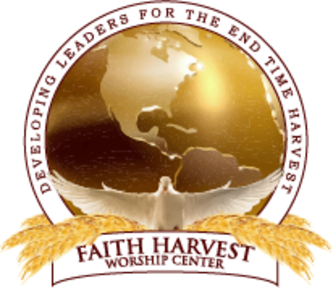Basic Theology Ch. 7

The Names Of God
The many names of God in the Scripture provide additional revelation of His character. These are not mere titles assigned by people but, for the most part, His own descriptions of Himself. As such they reveal aspects of His character.
Even when no particular name is used, the occurrence of the phrase “the name of the Lord” reveals something of His character. To call on the name of the Lord was to worship Him (Gen. 21:33). To take His name in vain was to dishonor Him (Exod. 20:7). Not to follow the requirements of the Law involved profaning His name (Lev. 22:2, 32). Priests performed their service in the name of the Lord (Deut. 21:5). His name pledged the continuation of the nation (1 Sam. 12:22).
I. ELOHIM
A. Usage
The term elohim occurs in the general sense of deity about 2,570 times in the Old Testament. About 2,310 times it is a name for the true God. The first occurrence is in the first verse of the Bible. It is used in reference to false deities in Genesis 35:2, 4; Exodus 12:12; 18:11; 23:24.
B. Meaning
The meaning of elohim depends on its derivation. Some understand that it comes from a root that means fear and indicates that the deity is to be feared, reverenced, or worshiped. Others trace it to a root that means strong, indicating a deity of great power. Though not conclusive, the evidence seems to point to the latter derivation signifying, in the case of the true God, that He is the strong One, the mighty Leader, the supreme deity.
C. The Plural Form
Elohim, a plural form, is peculiar to the Old Testament and appears in no other Semitic language. Generally speaking there are three views as to the significance of this plural form.
1. It is a polytheistic plural; i.e., the word originally had a polytheistic sense and only later acquired a singular sense. However, the monotheism of the Old Testament was revealed and not developed from polytheism.
2. It is a trinitarian plural; i.e., the Triune Godhead is seen, or at least intimated, in the use of this plural form. However, as we shall see in the next chapter, to conclude this necessitates reading New Testament revelation back into the Old Testament. The plural may allow for the subsequent revelation of the Trinity, but that is quite different from saying that the plural indicates Triunity.
3. It is a majestic plural. The fact that the noun is consistently used with singular verb forms and with adjectives and pronouns in the singular affirms this. This plural of majesty denotes God’s unlimited greatness and supremacy.
D. Relationships of This Name
If this name of God means the Strong One and occurs in a majestic plural, one would expect that it would be used in relation to His greatness and mighty acts.
1. In relation to His sovereignty. Elohim is used to describe Him as the “God of all the earth” (Isa. 54:5), the “God of all flesh” (Jer. 32:27), the “God of heaven” (Neh. 2:4), and the “God of gods and the Lord of lords” (Deut. 10:17).
2. In relation to His work of Creation. He is the Elohim who created all things (Gen. 1:1; Isa. 45:18; Jon. 1:9).
3. In relation to His judging (Pss. 50:6; 58:11).
4. In relation to His mighty works on behalf of Israel (Deut. 5:23; 8:15; Ps. 68:7).
E. Compound Names
1. El Shaddai. Though the derivation of this word is uncertain, the most accepted one is that shaddai is connected with an Akkadian word that means “mountain.” Thus this name of God pictures Him as the Almighty One standing on a mountain. It was the name by which God appeared to the patriarchs to give comfort and confirmation of the covenant with Abraham (Gen. 17:1; 28:3; 35:11; Exod. 6:3; see also Ps. 91:1–2). This name is also often used in connection with the chastening of God’s people (Ruth 1:20–21).
2. El Elyon. This name, “the Most High God” emphasized God’s strength, sovereignty, and supremacy. It was first used by Melchizedek when he blessed Abraham (Gen. 14:19), though if Isaiah 14:14 records Satan’s attempt to usurp the supremacy of God, this would be a prior use. After these early occurrences, its use recedes until about 1000 B.C., where it appears again in poetic and exilic literature (Ps. 9:2; Dan. 7:18, 22, 25, 27).
3. El Olam. This name means “the Everlasting God,” from an original form meaning “the God of eternity” (Gen. 21:33). It emphasizes God’s unchangeableness (Pss. 100:5; 103:17) and is connected with His inexhaustible strength (Isa. 40:28).
4. El Roi, “God who sees” (Gen. 16:13). Hagar gave this name to God when He spoke to her before Ishmael’s birth.